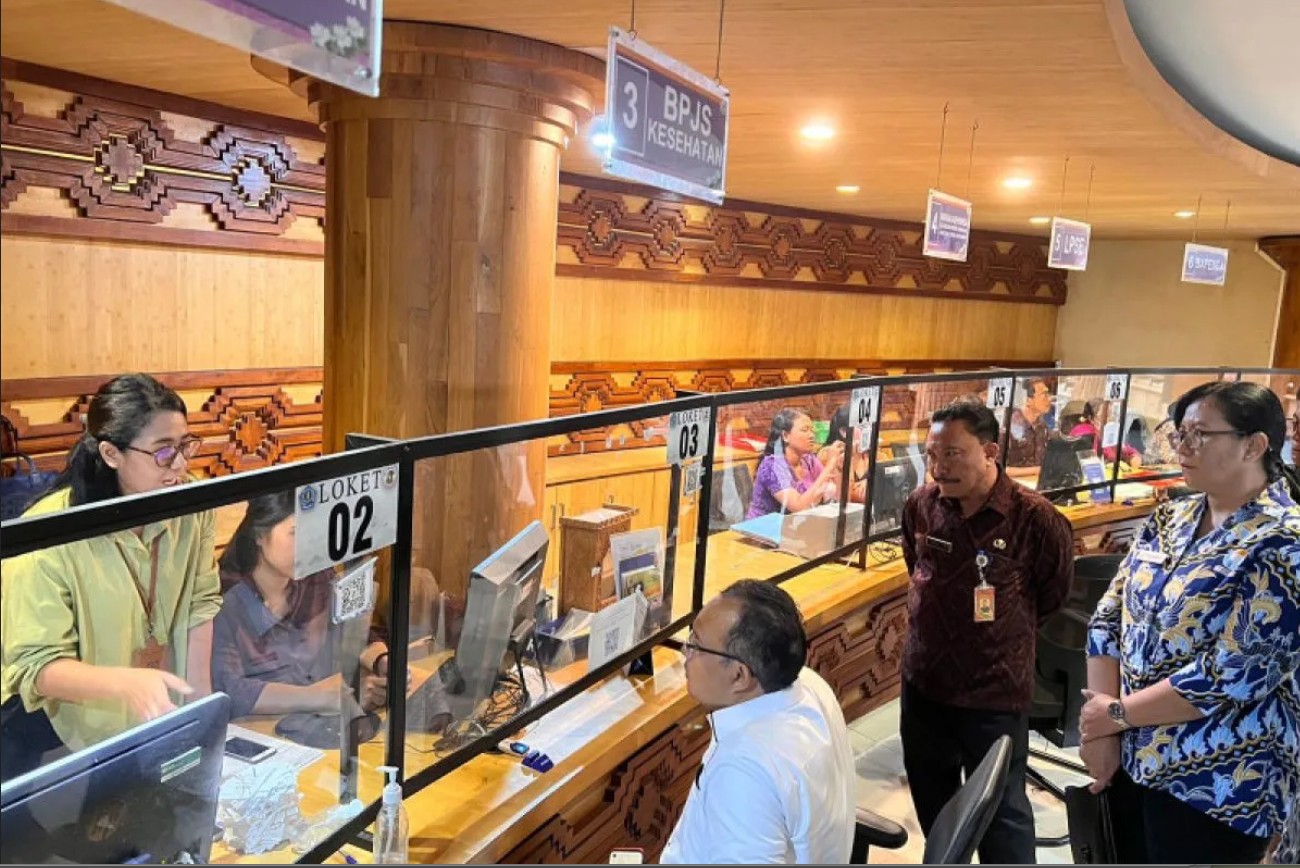Denpasar City Government, through the Organizational Division of the Denpasar City Regional Secretariat, has expressed its commitment to preventing maladministration in public services as part of efforts to ensure quality service delivery to the public.
This was conveyed by Denpasar Deputy Mayor I Kadek Agus Arya Wibawa during a public service supervision outreach event held at Sewaka Mahottama Hall, Graha Sewaka Dharma, Lumintang, Denpasar, on Wednesday (July 9, 2025).
Arya Wibawa emphasized that improving the quality of public services is a key mission in realizing Denpasar as a culturally-based and progressive city.
Denpasar Scores Improve
The value of “Sewakadarma”, or service as an obligation, has been embedded in the work ethic of government staff since 2008 and was reinforced through Mayor Regulation No. 38 of 2018 on Work Culture.
The city government has taken several concrete steps, such as developing service standards, conducting public consultation forums, carrying out Community Satisfaction Surveys, and forming Monitoring and Evaluation (Monev) Teams for public services. As a result, Denpasar’s Community Satisfaction Surveys scores have consistently improved year by year, maintaining an “excellent” category.
Denpasar has also actively participated in external assessments, such as the Public Service Delivery Performance Monitoring and Evaluation (PEKPPP) by the Ministry of Administrative and Bureaucratic Reform (PANRB), where its Public Service Index rose from A- in 2023 to A in 2024.
The city also excelled in the Public Service Innovation Competition (KIPP), achieving national Top 99 and Top 45 ranks. In the Ombudsman’s 2023 Compliance Survey, Denpasar earned a score of 97.99, placing it in the national top ten.
“We encourage all departments to continue innovating and collaborating to prevent maladministration and deliver excellent public services. Internal monitoring and inter-agency synergy must be strengthened with the spirit of Vasudhaiva Kutumbakam—that we are all family,” said Arya Wibawa as reported by AntaraBali.
Promoting Excellent Service Standards
Meanwhile, Head of the Organizational Division of Denpasar’s Regional Secretariat, Luh Made Kusuma Dewi, explained that the outreach aimed to increase understanding of the Ombudsman’s role in supervising public services, preventing maladministration, and promoting the implementation of excellent service standards within government agencies.
“The material presented includes the role of supervision in improving public service quality and efforts to prevent maladministration,” she said.
Participants in the event included heads of regional apparatuses, subdistrict heads (camat), village heads, urban village (kelurahan) heads, and heads of public health centers (UPTD Puskesmas) across Denpasar City. She expressed hope that the program would help build a professional work culture and a responsive bureaucracy.
Head of the Bali Ombudsman Representative Office, Ni Nyoman Sri Widhiyanti, stated that public service compliance scores across Bali, including Denpasar, have shown a positive trend from 2021 to 2024. However, in 2024, Denpasar’s national ranking dropped slightly from 2nd place in 2023, despite still having the highest Minimum Service Standard (SPM) score in Bali.
Out of 595 public complaints received by the Ombudsman concerning local government services, 354 were followed up through the Rapid Ombudsman Response (RCO) mechanism. These complaints were higher than those involving ministries and other institutions.
The majority involved the transportation and infrastructure sectors (365 cases), followed by education (29), civil administration (29), licensing (28), and staffing (23).
The most common forms of reported maladministration were failure to provide service (321 reports), unreasonable delays (94), procedural violations (83), incompetence (22), as well as abuse of power, inappropriate conduct, discrimination, bribery, partiality, and conflicts of interest.
“This data from 2013–2025 shows Denpasar has received numerous complaints, especially concerning infrastructure. For example, when a damaged road is not repaired promptly, it is seen as a failure of public service,” Widhiyanti explained, quoting from BaliPost.
She emphasized that access to public services is a fundamental right of all citizens and that maladministration can often be the starting point of corruption. Thus, effective public service oversight is essential in anti-corruption efforts.
“Enforcement alone is not sufficient. Without solid prevention measures, corruption will continue. Even if we’ve done prevention, the persistence of corruption may indicate a need for more massive and systemic efforts,” she stated.
Widhiyanti added that Ombudsman, along with the Regional House of Representatives (DPRD), civil society, and the media, plays a key role in overseeing public service delivery.
Concluding the session, Deputy Mayor Arya Wibawa reiterated Denpasar’s commitment to continuously improving public services. This is reflected in the 2024 Community Satisfaction Survey (SKM), where Denpasar scored 91.78.
He also highlighted the shift in public complaint patterns, which now increasingly occur through social media. As a response, local agencies have activated WhatsApp groups to respond quickly, in addition to establishing online complaint channels and other digital platforms to ensure fast and effective handling of public concerns.
Sources: AntaraBali, BaliPost
Feat Image: via Denpasar City Gov’t

